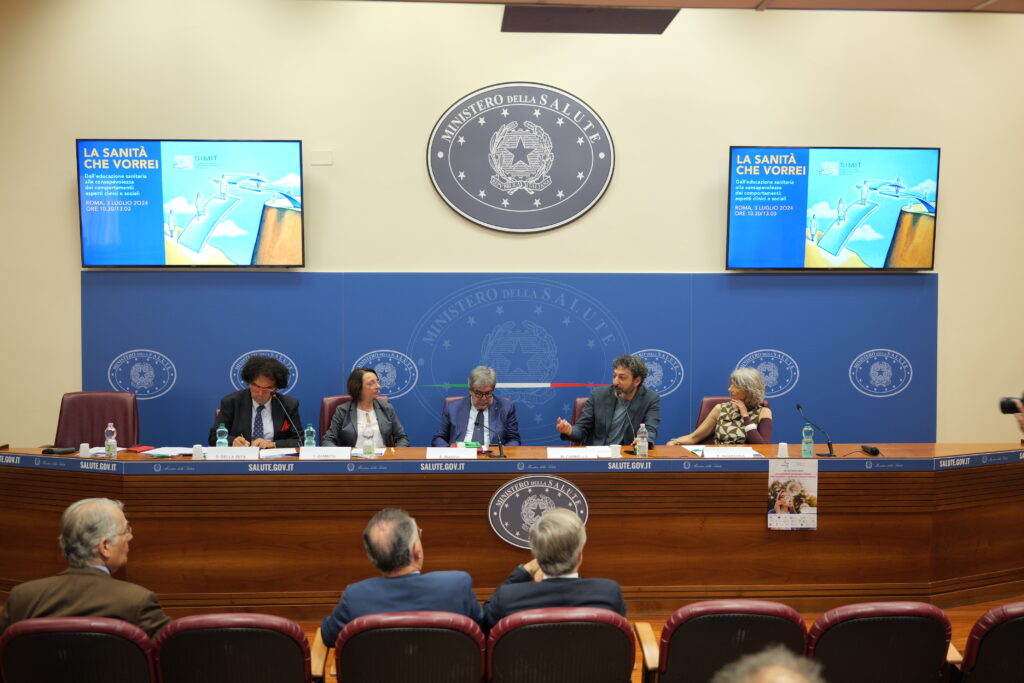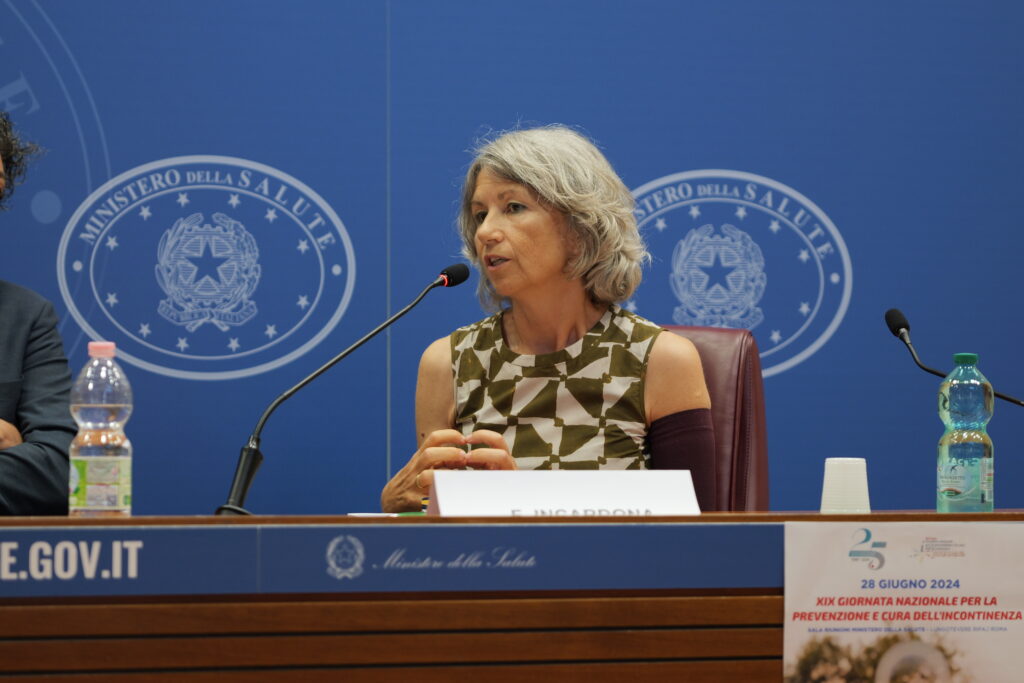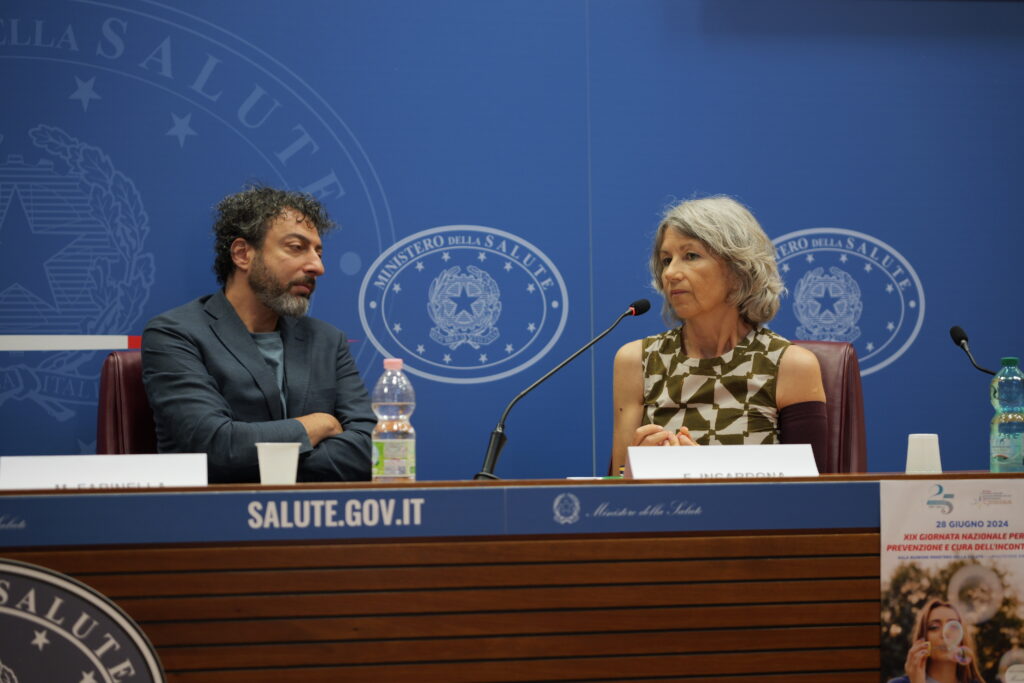On 3rd of July 2024, the topic of Pandemic preparedness was highlighted again after the EuCARE joint dialogue of preparedness in 2023.
Francesca Incardona, project coordinator of the EuCARE project was invited to present at a high-level conference at the Italian Ministry of Health, “La sanità che vorrei – Dall’educazione sanitaria alla consapevolezza dei comportamenti: aspetti clinici e sociali”, with a focus on the take home messages from the EuCARE Preparedness session.
The conference organized by the Italian Society of Infectious and Tropical Diseases (SIMIT), highlighted civil and health education themes to raise awareness for the rise of infectious diseases, as the Ministry of Health of Italy calls for an educational campaign.
The experience of the COVID-19 pandemic reveled the importance of prevention in fighting infectious diseases, as it was explicit by Eugenio Giani, President of the Tuscany Region.
Francesca Incardona explained the value of the civil society contribution, as the EuCARE joint dialogue on preparedness 2023 reveled innovative ideas to showcase the efforts and insights learned from the COVID-19 pandemic. The key-messages discussed in the last year’s EuCARE Joint Dialogue on Preparedness were shared among this high-level conference.
This is still a hot topic among researchers, stakeholders and decision makers to overcome challenges and barriers and improve preparedness and health responses to future pandemics.
Expanding the discussion from prevention to preparedness, Francesca Incardona reported to the distinguished audience the key-messages derived from the EuCARE Joint Dialogue on Preparedness:
- A strong evidence-base is essential for the design of successful and ethically acceptable non pharmacological interventions: epidemiological studies should be run quickly, complemented by other observational and randomised controlled studies, to shape informed decisions.
- Crucial infrastructure (such as biolabs, hospitals and schools) should be linked into centralised national-level networks, long term cohorts or data registries in order to rapidly provide reliable data ready for modelling and analysis.
- Data collection, management and storage, together with all the aspects it brings about, is fundamental in order to rapidly assemble data to study a new threat and to derive evidence-based interventions. It implies diffused data culture, interoperable Electronic Health Records in place, use of standards, policies to share data.
- Redundancy of personnel in the healthcare system is key to being able to promptly devote extra effort to face unexpected events. There is scarcity of key figures like IT personnel and research nurses in hospitals.
- Trust in health care systems and health authorities is essential for the success of pandemic preparedness initiatives and interventions.
- Artificial intelligence brings promising results for research and development on treatment and preventive measures for pandemic preparedness.






